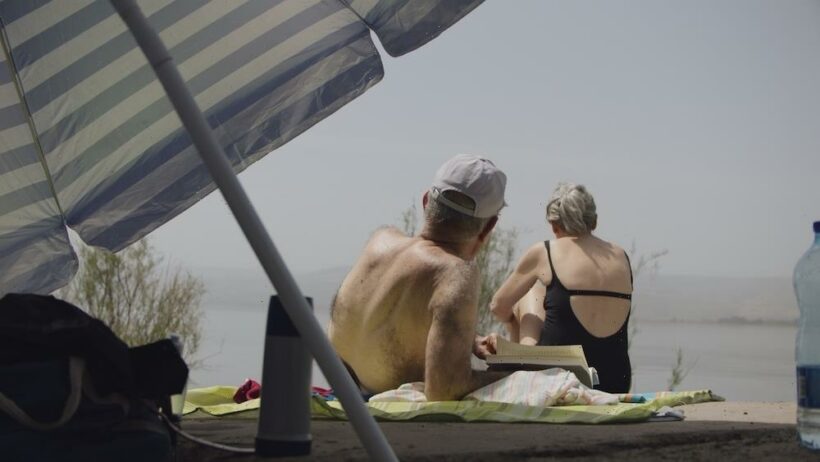Funded by multiple arts organizations, the hybrid documentary “Foragers” from the Berlin-based Palestinian sculptor and filmmaker Jumana Manna investigates the age-old Palestinian practice of gathering wild edibles such as the herb za’atar and the delicacy ‘akkoub, a thistle-like plant with medicinal properties, and how these traditions conflict with Israeli nature conservation laws that essentially criminalize the Palestinian herb-picking culture. Including some unexpected humor, Manna’s gentle approach is more poetic meditation than commercial nonfiction. “Foragers” has already been exhibited as an installation at California’s Berkeley Museum of Art, one of the commissioning funders. It should be welcome at other museums and media centers.
Israel declared wild za’atar a protected species in 1977. Manna uses archival footage to show that shortly thereafter a kibbutz in the Galilee started cultivating the herb and selling it back to Palestinians, as well as exporting it to Arab countries, using packaging to make it appear as a Palestinian product. Meanwhile, ‘akkoub landed on the protection list nearly 30 years later. Her interviewees maintain that is only because Arabs like it very much.
With foraging most common in the hills of east Jerusalem, the Galilee and Golan Heights, the film boasts some beautiful landscape shots. Among the most amusing visuals are long shots of people visible only as bobbing colors among the green and then completely disappearing from sight as the Israeli Nature Patrol arrives on the scene.
It seems that it is mostly older Palestinians caught and prosecuted for their foraging activities. Penalties include stiff fines or jail time. The scripted confrontations between unseen prosecutors and the unrepentant gatherers who argue that they are collecting the plants for home use represent the hybrid aspect of the film. Manna wrote the dialogues with attorney and scholar Rabea Eghbarieh, and they depict foraging as an act of survival and anti-colonial resistance, the continuance of a culinary tradition dating back hundreds of years. The exasperated foragers also make the point that their expertise in cutting the prickly ‘akkoub helps the plant to regenerate.
As in some of her short films, Manna also makes use of her own family, showing her academician parents Aziza and Adel deriving great satisfaction from their foraging of a multitude of wild plants and herbs not far from their East Jerusalem home. She also follows Aziza on a visit to her older sisters in the Galilee where they share a delicious-looking meal of herbed breads and stewed ‘akkoub.
Zeidan Hajib is another memorable forager. Accompanied by his six lively dogs and carrying the tools to cut ‘akkoub in his backpack, the elderly man knows the best places to harvest his contraband. Living amidst the ruins of a stone shed on land once cultivated by the filmmaker’s grandparents, he represents the Palestinians historical intimacy with nature.
Manna, a rising art world figure who studied in Jerusalem, California and Norway, here works again with collaborators from her 2018 documentary “Wild Relatives,” including cinematographer Marte Vold and editor Katrin Ebersohn. The playful score and sound mix by Rashad Becker makes parts of the film feel like a chase between the foragers and the Israeli patrol.
Source: Read Full Article
